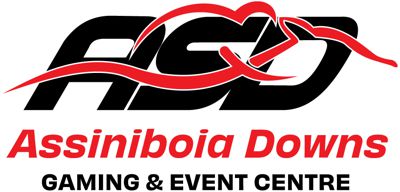
L to R Jim and Hazel Wright, Bory Margolis and Michael Magee. 1979 Manitoba Derby.
by Bob Gates
Remember Michael Magee? Michael was a man of many talents: actor, writer, narrator, producer, director, freelance broadcaster and CBC Sports’ horse racing analyst/commentator from 1964 to 1986.
Frankly, nobody did it better.
I hadn’t thought about Michael Magee in a while, but I did this past weekend.
Michael passed five years ago in July 2011. But it was Sunday’s Queen’s Plate that triggered memories of the man who brought to horse racing what Walter Cronkite brought to broadcast news. Yes, he was that good!
CTV’s coverage of the Plate was decent, but nothing special. They delivered a program that was pretty much what it has been for some time, but something was missing. Then it hit me. Firstly, I was watching CTV, not the “Peoples’ Network.” Actually, I’m not sure how long CTV has even been doing the race, so that was only a part of it. There was something else.
That’s when I thought about Michael Magee and his work on CBC horse racing telecasts, but not just the Queen’s Plate and the other Canadian Triple Crown races. Back in racing’s hay days of the 1970s, CBC televised Canadian stakes races from Vancouver to Toronto and all places in between, including Winnipeg. Races such as the Winnipeg Futurity and the Manitoba Derby received national coverage back then. I miss those days!

Michael Magee interviews jockey Sandy Hawley at the 1975 Manitoba Derby. Don Wittman looks on
Michael was known for a host of things. I could tell you about his work on the popular 1980s Canadian animated series “The Raccoons,” his book “Champions” in which he wrote about the careers of thoroughbred racehorses from the Golden Age of Horse Racing, or his exploits as the curmudgeonly Fred C. Dobbs, but these aren’t what are important to us.

Magee (far left) beside jockey Sandy Hawley as Mayor Juba makes presentation to Winnipeg Futurity (1974) winner Jean-Louis Lévesque.
People from the wide world of horse racing will always remember Magee’s colourful insightful commentaries on CBC thoroughbred racing telecasts.
I was lucky enough to speak with Michael about a month before his death. It was 90 minutes of my life that I wouldn’t trade for anything. Here is a collection of some of his thoughts. Enjoy!
- He spoke of what he considered the “ills” of racing today, the high takeouts and the rampant use of legal drugs. He badly wanted to see racing go drug free.
- He had high praise for a special trip he made to the Downs in the spring of 1976 when he conducted a handicapping clinic. In the end, the “clinic” tuned into more of a stage show where he regaled attendees with his best horse racing tales. I was there and remember it well. Everyone was thoroughly entertained and could have listened to him well into the night.
- Michael believed there was something “sacred” about horse racing. Going to the track was a solitary event for him. He preferred to go alone because handicapping required painstaking attention to detail, anything else was a distraction.
- He saw racing as a movie with horses and jockeys as actors and the betting public was the audience.
- He strongly maintained that if racing was going to survive “the place can’t be empty.” You need people to come out to the track, not just wager from home.
- To a struggling would-be author his advice was simple, “be clear on what you’re doing and why you’re doing it.”
- He was proud of his namesake “Michael Magee” a thoroughbred that raced at the Downs from 1975 to 1983. The Clayton Gray trained colt ran against some of the best stakes horses the Downs had at the time: Mood E Me, Icy Welcome, Persian Memories, Sunraysed and Manitoba Derby winner Merry’s Jay. He explained that he had to give his consent to the Jockey Club of New York for Dakotah Stables to use his name.
- He didn’t like to interview jockeys because “they are as forthcoming as hockey players, full of nothing but clichés and dribble.”
- Straight shooter you say? He made the following comment on a nationally known jockey, “he was natural gifted athlete, but tiresome, unable to articulate and an absolute bore to interview.” Ouch!

Michael Magee with Michael Magee the horse and trainer Clayton Gray.
It’s hard to believe that 40 years have passed since Michael’s handicapping clinic at the Downs and five years since his death. Have you ever noticed that time has a funny way of twisting our memories? We don’t get to decide what we remember, we just do.
One memory of my telephone conversation with Michael that I just can’t shake was the one and only time we were interrupted. He had to excuse himself when his cat “Annie” insisted she be let outside.
Like I said, there is no rhyme or reason for what we remember.
One more thing most of us wouldn’t know and one of the reasons I liked Michael. Wealthy industrialist and racing icon, E. P. Taylor was his uncle. But that tidbit was almost never discussed, at least Michael never brought it up. Why? Because it wasn’t relevant to racing.
The colourful Canadian commentator from Caledon, Ontario, and friend of Assiniboia Downs, was his own man.
And he knew horse racing!

